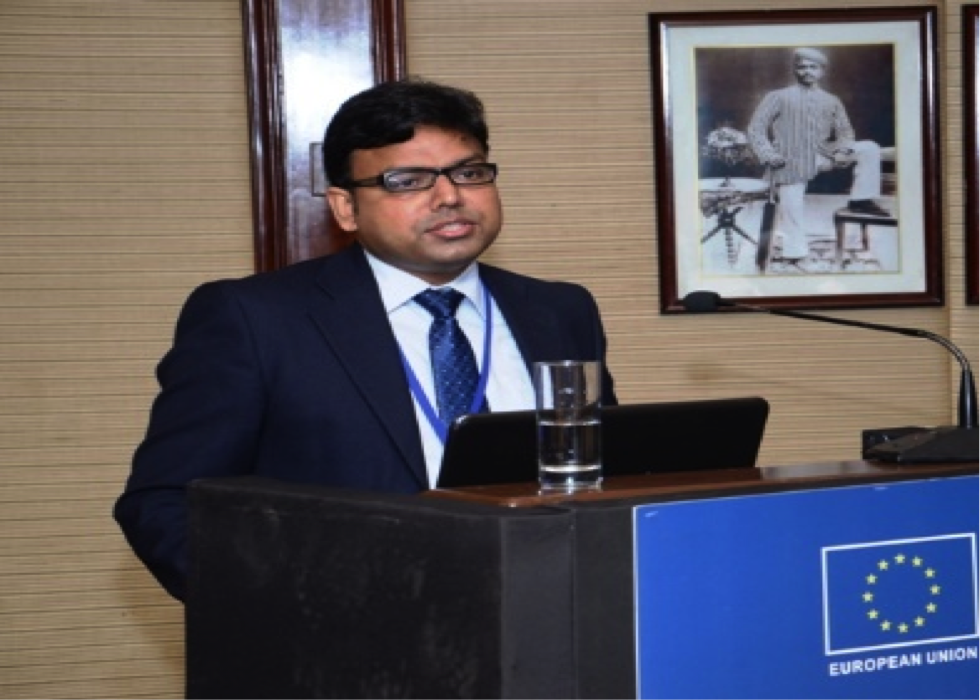Pursuing My Passion From Government Bureaucracy to Corporate Strategy
I have always dreamt of a world where one can do whatever one wants, consume whatever one wishes, live wherever one desires. Globalization makes it happen by ensuring freer movement of capital, merchandise and people across regions. Trade policy is one of the main tools that promotes this borderless world, and that’s the reason why it has always fascinated me.
My first real exposure to trade policy was in 1991 when India started its economic reforms that opened the country to the forces of globalization and free market economics. In 1995, the same year the World Trade Organization (WTO) formally came into existence, I opted for international trade as one of my electives while pursuing my Bachelor’s in Economics.
My love affair with Trade & the WTO continued into my post graduate studies. I taught Economics for a brief period at a Civil Services Coaching Institute. Then, I got a chance to join India’s federal government as Research Officer (Economics) and was put to look after Trade Policy Desk. There, I could play a role (even if it was a small one) in the policy formulation of a country that was well on its path of rapid globalization. I couldn’t have asked for more.
Moving to the private sector
Eventually I got bored of working for the government as I felt the bureaucratic machinery suppressed all initiative. I was too ambitious for that. When I got an offer to lead the trade policy initiatives of a diversified translational corporation Aditya Birla, I said goodbye to my government job, and left Delhi for the city of dreams Mumbai. It was risky as I had no prior work experience in the private sector. Most trade experts I knew were from government so lacked private sector perspective. I was alone in my new journey.
However, I ended up getting the autonomy I was looking for in my new job. The diverse business interests of the conglomerate offered immense opportunities to apply my trade policy skills and help its businesses factor in the implications of bilateral, regional and multilateral trade pacts in their commercial strategies.
Upgrading my knowledge
However, each day I felt my existing knowledge was insufficient to deal with the complex queries I was getting. I always wanted a second opinion from someone who understood business and trade policy, and the linkage between the two. A friend suggested that I seek help on LinkedIn.
I joined LinkedIn Groups such as WTO Professionals and International Trade and WTO Law that connect fellow trade professionals from all parts of the world. I started posting my queries with request for advice. Many of the members sent me reports and shared links to relevant articles. That helped me a lot in upgrading my knowledge.
Establishing thought leadership
Observing the near absence of discussion about the implications of trade policy for businesses in Indian media, I decided to write about it to present the corporate perspective. I wrote my first opinion piece about Chinese Trade Policy, and sent it to almost all business newspapers of India one by one. No one replied. Disillusioned, I approached a LinkedIn connection as my last attempt to publish my first article. He gave me two names from Business Line, and I sent one of them my piece. The next day, I got a reply that if I can cut my piece to 1,000 words, they would publish it.
By writing about trade policy issues in newspapers, I learned to articulate in a non-technical language – that played a key role in my evolution as a corporate advisor. Since then, I’ve been contacted to speak at conferences and seminars, management schools and even participate in TV debates. LinkedIn has been a great platform for me to connect globally with fellow professionals, build my professional brand, and transform my career along the way.
Editor’s Note: If LinkedIn has helped you transform your career or business, please share your story with us or write a post on LinkedIn with the hashtag #MyLinkedInStory. For more inspiration, check out more success stories.


